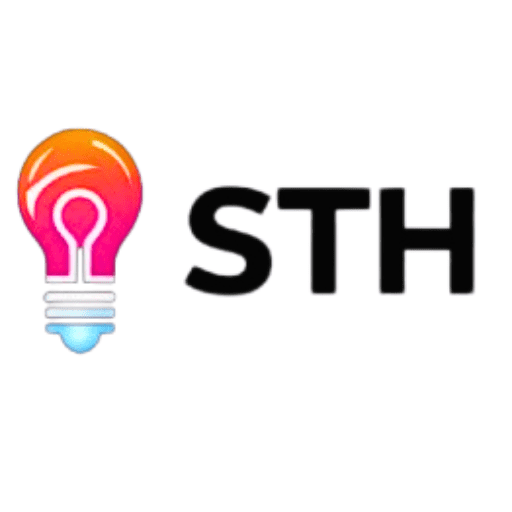The rapidly shifting world of healthcare finds itself undergoing gut-feeling changes under the dual impact of Biotechnology and Innovation. These two fields, with the sheer depth of their conquest-from advanced treatment to next-generation technology-have practically bolstered the different ways we diagnose, treat, and potentially prevent diseases. The blog will thus be constantly tracking how advancements in healthcare innovation and biotechnology are facilitating the budding prospects of medicine. These pointers will be good for healthcare providers, biotech sprightlies, and anyone with sheer curiosity about the future of health.
1. The Basic Notion of Healthcare Innovation and Biotech
Healthcare innovations and biotechnology are barely a step ahead in modern medicine, giving hope to patients and turning life upside down regarding health and wellness. The Biotechnology field, which involves exploiting the biological resources and living systems to develop or prepare products, is a pillar of medical development these days. From drug creation age to medical device creation, biotech is the one promising a healthy future. According to the World Health Organization, healthcare innovation is critical to addressing global health challenges.
2. The Functions of Biotechnology in Modern Medicine
Biotechnology acts as an engine for developing treatment and therapies and hence occupies a key role in modern medicine. It covers a range of applications– genetic engineering, molecular biology, and bioinformatics; the skills that these technologies are used to develop targeted therapies andin develop methods to better diagnose individuals.
Key Areas in Medicine Biotechnology Addresses:
Genetic engineering: Intervention to modify organisms in order to produce desired traits or products.
Molecular biology: The study of organisms to better understand the molecular mechanisms of biological processes and develop new treatments.
Bioinformatics: An approach to analyzing biological data using computational tools to enhance drug discovery.
3. Major Improvements in Healthcare Innovations
mRNA Technology
An unprecedented avenue was paved, most dominantly after the onset of the covid vaccine in the light of mRNA technology. This technology empowers cells, acting as a messenger through a special RNA type, messenger RNA in producing protein and inducing an immune response. New fields are being opened by mRNA vaccine success that might change the game for other diseases, especially cancers and genetic disorders.
Main Advantages:
Fast development and easy production
High efficacy and good safety
Potential for personalized vaccines
Personalized Medicine
Personalized medicine, appointed also as precision medicine, assures customizing medical treatment to the specific requirements of each patient. This would allow the healthcare provider to tailor treatment plans to the genetic, environmental, and lifestyle factors affecting each patient for the greatest possible improvement in outcomes with the least possible side effects.
Fun Fact Alert!
mRNA technology was discovered in the 1960s, and it took nearly fifty years to make it workable for vaccines. In modern times, it is used in everything, from cancer-related treatments to personalized medicine.
Main Advantages:
Genetic understanding will provide therapies against target
Better outcomes for patients
Reduced healthcare costs Introducing Artificial Intelligence in Drug Discovery

Drug discovery continues to be a revolutionary game arena where AI fast-tracks potential leads. Drug development involves incorporation into an AI algorithm while analyzing enormous amounts of data to predict how different compounds will interact with the biological targets and subsequently be significant time and cost reductions.
Interesting Fact!
An AI algorithm discovered, in just 48 hours, a new antibiotic called halicin in 2020! The discovery of a drug traditionally takes years, but with AIs speeding up the process, hopefully some would reach the market in time to save millions.
Potential Benefits:
Faster identification of drug candidates
Reduced development costs
Increased precision in targeting diseases
CRISPR and Gene Editing
CRISPR has been touted as possible one of the finest techniques for gene editing that can be very precisely changed by scientists in DNA. In addition to this amazing technology, CRISPR is expected to also play a major role in cure for genetic disorders or, possibly, open up a new therapy age for the developed technologies or diseases.
Key Benefits:
Precision and efficiency in gene editing
Cure genetic diseases
Use in agriculture and biotechnology
Did You Know?
CRISPR-Cas9 functions rather like scissors at the molecular level, giving scientists the ability to cut and paste DNA with utmost precision. Think of it as gene-editing for Word documents! This technology may one distant day cure genetic disease such as sickle cell anemia.
Telemedicine and Digital Health
In fact, the telemedicine and digital health solutions will forever change the way health care is being given. That also means remote consultation and real-time monitoring or access to medical information, which increases accessibility and efficiency in healthcare delivery.
Key Benefits:
Improved access to healthcare services
Enhanced patient engagement
Cost-effective healthcare delivery
Did You Know?
Your smartwatch could save your life! Devices like the Apple Watch can monitor your heart rate, detect irregular rhythms, and even alert you to potential heart conditions. Some studies suggest they could help diagnose conditions like atrial fibrillation early, preventing strokes.
4: The Biomaking and Its Effectiveness on Illness Treatment
Cancer Therapies:
Biotechnology is revolutionizing cancer treatment through targeted therapies and immunotherapy. These therapies inject directly into the malignant cells but not in the healthy cells so that they can improve the overall patient outcome.
Key Advancements:
Immunotherapy: Utilizing the immune system to eliminate malignant cells.
Targeted Therapy: With drugs that attack one or more particular molecules implicated in oncogenesis.
CAR-T Cell Therapy: Redirect engineering of T cells in relapsing cases to target and kill cancer cells.
Rare Diseases and Orphan Drugs
Biotechnology has been consistently developing better ways of treating rare diseases. Most orphan drugs developed solely for these rare conditions have rekindled hope in the affected patients and their families.
Key Advancements:
Gene Therapy: Correcting gene defects for rare disease treatment.
Enzyme Replacement Therapy: Replacement of abnormal or missing enzymes to relieve symptoms.
Small Molecule Drugs: Manufacture of drugs that can target specific pathways involved in rare diseases.

Infectious Diseases and Vaccines
Remarkable strides have been made in biotechnology and continues to thrive with regard to infectious diseases in the form of vaccines and therapeutics. The advancement in vaccine technology, especially remarkable mRNA technology, truly signifies a paradigm shift in the prevention and control of infectious diseases.
Some Important Innovations Are:
mRNA Vaccines: Fast-tracked, they have effectiveness in preventing infectious diseases.
Antiviral Therapy: Development of medications against viral infections of HIV and hepatitis.
Antibiotic Resistance: Resistance posed by antibiotic microbial goes to be the increasing problem yet.
Challenges and Ethical Considerations
Health care innovations and biotechnology hold tremendous promise in this century and pose a set of challenges and ethical dilemmas. These challenges and ethical considerations include:
Regulatory Hurdles: Security and efficacy of new therapies by extensive testing and rigorous approval processes.
Cost and Accessibility: Advanced treatments should be made affordable and accessible to every patient.
Ethical Considerations: These include genetic editing, data privacy, and informed consent.
Future Healthcare Innovation and Biotech
The future of healthcare-innovation and biotech looks exceedingly bright. Nanotechnology, synthetic biology, and advanced diagnostics represent further refinements for the practice of medicine, while AI and big data analytics are going to push it even further in the prevention, prediction, and treatment of a disease.
Key Trends to Watch:
Nanomedicine: The use of nanotechnology in targeted delivery and diagnostics.
Synthetic biology: The design and construction of novel biological parts and systems.
Wearable tech: Health monitoring fused with the lifestyle.
Regenerative medicine: Protocols for repairing or replacing diseased tissues and organs.
Interesting Fun Fact!
Scientists are growing mini-organs (organoids) from stem cells in laboratories. These tiny livers, kidneys, and even mini-brains are being used for drug testing and disease studies that may open the doors for lab-grown organs for transplants in the future.
Conclusion

Innovations in healthcare and biotechnology, therefore, define the future of medicine while offering new hope to patients in alleviating war on health and wellness. From mRNA technology and personalized medicine to AI-based drug discovery and CRISPR gene editing, they pave the way for a healthier and wealthier tomorrow. Then, there are challenges and ethics that will require attention to ensure that the fruits of these innovations are distributed to all; while Biotech holds the promise.
Being constantly informed about the developments in healthcare innovation and biotech enables one to better grasp how these technologies may enhance human life. Meanwhile, one can still witness how we can fast-track the progress of medical science. For health professionals, biotechnologists, or just those curious about the future of health, healthcare innovations and biotech are bound to be one exciting and transformative ride.
1. What is Biotech?
Biotechnology or Biotech is the kind of technology that changes or uses any living organism, cell, or biological system for the manufacture of a product or provision of a service that gives value to the human health system, agriculture, and the environment. Biotech encompasses sequencing, genetic engineering, drug development, and sustainability.
2. Are there biotech jobs in the sports industry?
Yes, there are u003cstrongu003ebiotech jobs in the sports industryu003c/strongu003e! Biotech is used for u003cstrongu003eperformance enhancementu003c/strongu003e, u003cstrongu003einjury recoveryu003c/strongu003e, u003cstrongu003enutrition optimizationu003c/strongu003e, and u003cstrongu003ewearable tech developmentu003c/strongu003e. Roles include sports scientists, biomechanics experts, and Ru0026amp;D professionals working on innovations like smart gear, recovery therapies, and genetic testing for athletes.
3. How biotech is harmin us and the environment?
u003cstrongu003eHealth Issues: u003c/strongu003eThe long-term health-related effects of GM organisms and new medicines are probably going to be unknown.u003cbru003eu003cbru003eu003cstrongu003eLoss of Biodiversity:u003c/strongu003e Engineered crop species are known to compete naturally for survival with the wild varieties, thus threatening to destroy the entire ecosystem’s biodiversity.u003cbru003eu003cbru003eu003cstrongu003eGenetic Pollution: u003c/strongu003eThe modified gene transfer into the wild population will create an imbalance in the ecosystem. Ethical Issues: Misuse of genetic editing such as CRISPR raises ethical issues and safety concerns.u003cbru003eu003cbru003eu003cstrongu003eChemical Overkill:u003c/strongu003e The cultivation of biotech crops requires many chemical pesticides that eventually destroy the nature of soil and water systems.u003cbru003eu003cbru003eThe effects of biotechnology-indicated disorders should, therefore, be managed very carefully, especially when contrasted with positive results accrued from biotechnology.
You can also read:
How Emerging Markets is The Next Frontier for Global Business Growth












